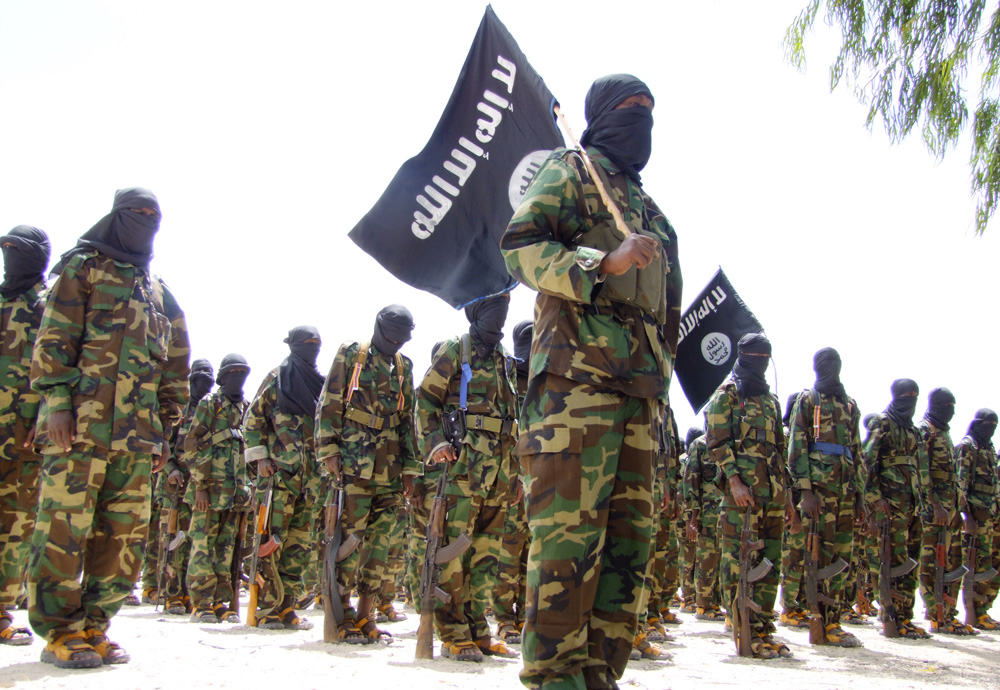Al-Shabaab Kills 13 In Somalia

NEW DELHI: At least 13 people were killed when two vehicles packed with explosives were driven into a base for African Union troops in the Somali capital of Mogadishu on Tuesday.
Reports state that the first blast occurred near an entrance to the base -- near the city’s main airport. The second blast was at a nearby checkpoint manned by Somali government forces.
Al-Shabaab militant group claimed responsibility for the attack. "Our Mujahideen targeted Halane which is base to the foreign forces occupying our Muslim country. We have killed dozens of them," Abdulaziz Abu Muscab, a spokesman for the group, said.
The African Union Mission in Somalia (AMISOM) took to Twitter to condemn the attack.
Farhan Haq, spokesperson for the UN secretary general, also denounced the attack. "It is disturbing, both the attack and the scale of the attack," Haq told reporters on Tuesday. The spokesperson added that "It's clear that the explosives in the trucks were of immense firepower” and that if the guards had not stopped one of the cars from entering the UN premises, there "would have been considerably more damage and loss of life".
It is not the first time the militant group has attacked African Union bases in the city. In December 2014, al-Shabaab militants breached the base's security perimeter before engaging troops in a gun battle that lasted several hours and killed at least three soldiers.
Further, al-Shabaab continues to hold large swathes of territory across Somalia. In fact, al-Shabaab rarely grabs international headlines although the group is brutally active across Somalia and Kenya.
Recent attacks include an attack at the gate of a hotel in Mogadishu that killed 15 in January this year;an attack that killed 147 at Garissa University College, Kenya in April last year; an attack on Central Hotel in Mogadishu in February; an attack that killed 36 quarry workers in northeast Kenya in December 2014; an attack on a bus in near Mandera that killed 28 in November the same year, and an attack on a restaurant popular with foreigners in downtown Djibouti that killed 20 people in May that year.
The group however, is internationally known for its attack on the Westgate shopping centre in Nairobi in September 2013, which it said was in retribution for the Kenyan government’s decision to send troops into Somalia to fight alongside government forces.
Al-Shabaab declared jihad on Kenya as far back as 2010 on allegations that the Kenyan government was training Somali troops, which Kenya denied. This threat was heightened post 2011 when the Kenyan government sent troops as part of a United Nations backed African Union force that pushed al Shabaab militants out of Somalia's capital, Mogadishu in 2011, and out of the vital port of Kismayo in 2012. The port has been a vital asset for the militants, enabling supplies to reach areas under the group’s control and providing taxes for its operations.
After 2011, al-Shabaab’s influence in Somalia was reduced from control over large swathes of the country’s central and southern areas, including its capital, to limited rural areas. Kenyan troops continue to serve as part of the African Union force, playing a pivotal role in capturing areas from al-Shabaab’s control.
The al-Shabaab group carries out attacks within Somalia often. In March 2014 for instance, the militants led a suicide raid on a hotel in the southern town of Buuloburde, killing a number of people days after the town was recaptured from the militants. The attack followed an assault on a military convoy near the capital city, killing four Somali soldiers. In February last year, 14 people were killed as the group attacked the Somali presidential palace although Somali president, Hassan Sheikh Mohamud, was unharmed.
Al Shabaab’s control of parts of Somalia’s countryside and smaller towns is being used by the militants as a launchpad to plan and execute attacks in the country and beyond Somalia’s borders, examples being the attacks in Kenya. In addition to Kenya, the group has specifically targeted Uganda, also a neighbouring country that has contributed fighters to the African Union force. The deadliest attack in Uganda by the militant group killed 64 people in Kampala as they watched the World Cup final in 2010.
The group, which has links to Al Qaeda, has denounced the 2012 election of President Hassan Sheikh Mohamud, which was backed by a UN-brokered peace process, as a foreign plot to control Somalia. The group’s rise to influence can be located within the political context of Somalia, which has lacked an effective national government for over twenty years, making the group’s promise of security appealing to the country’s population. The Somali government maintains that the group’s presence is on the decline and the militants are on the verge of being defeated. The latest attacks, however, suggest otherwise.



